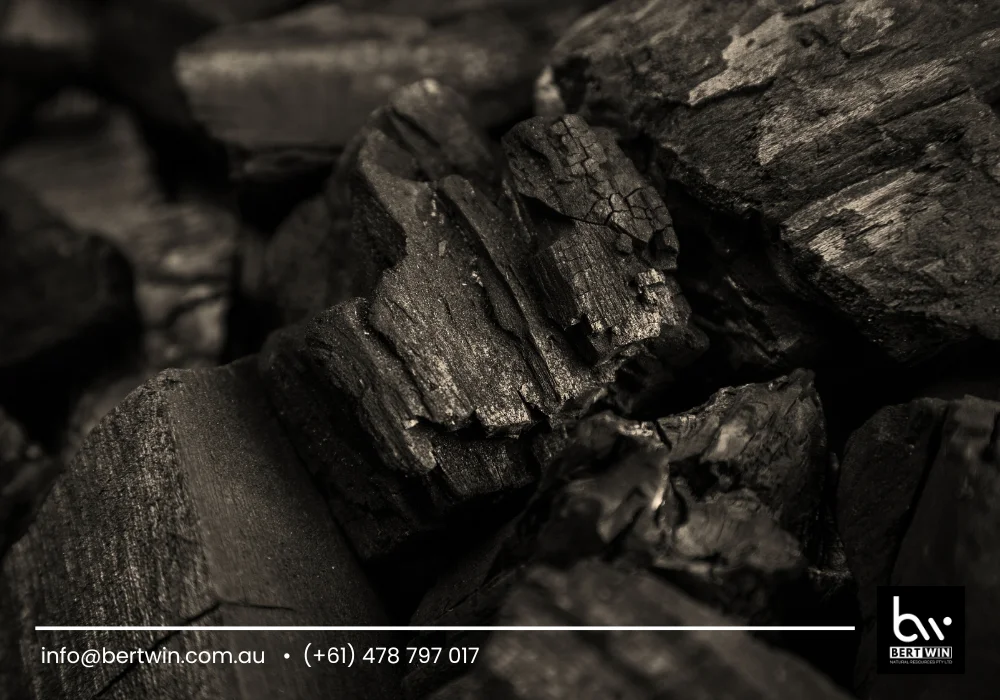Sustainable coconut charcoal is rapidly emerging as an essential material in various industries, offering a renewable and eco-friendly alternative to traditional charcoal and other energy sources. This article will explore the concept of sustainable coconut charcoal, its production process, and how it can address key environmental and economic challenges. We will also discuss its applications and how it offers a solution for both consumers and businesses looking for more sustainable energy options.

What is Sustainable Coconut Charcoal?
Sustainable coconut charcoal is produced by carbonizing the husks of coconuts in a controlled environment. Unlike traditional charcoal made from wood, which contributes to deforestation, coconut charcoal utilizes the byproduct of the coconut industry, making it a highly sustainable resource. The process of creating sustainable coconut charcoal involves heating coconut shells at high temperatures in the absence of oxygen, a process known as pyrolysis, which results in a cleaner, long-lasting fuel.
One of the main benefits of sustainable coconut charcoal is its lower environmental impact. It is made from a renewable resource—coconuts—rather than hardwood trees, which take much longer to regenerate. This makes it an excellent option for reducing the carbon footprint associated with traditional charcoal production.
Problems Addressed by Sustainable Coconut Charcoal
- Deforestation and Habitat Destruction
Traditional charcoal production often involves cutting down trees, leading to deforestation and loss of biodiversity. Sustainable coconut charcoal provides a solution by utilizing waste materials from coconut processing, such as the husks, instead of relying on cutting down trees. This practice helps protect forests and ecosystems, contributing to better land management and reduced habitat destruction. By using coconut shells, which are a byproduct of coconut farming, the environmental impact is significantly reduced. This makes sustainable coconut charcoal a far more eco-friendly choice compared to charcoal made from timber. - Air Pollution from Traditional Charcoal
The production of traditional charcoal can result in harmful emissions and air pollution. These pollutants can contribute to climate change and damage the environment. In contrast, the pyrolysis process used to make sustainable coconut charcoal produces lower emissions, contributing to cleaner air. Furthermore, coconut charcoal burns more efficiently than traditional charcoal, producing less smoke and fewer pollutants. This makes it an excellent choice for cooking and heating, particularly in areas where air quality is a major concern. - Waste Management
In many tropical countries, coconut shells were once discarded as waste, creating unnecessary landfill buildup. Sustainable coconut charcoal addresses this issue by transforming these discarded shells into a valuable resource. This not only reduces waste but also provides an economic benefit to communities that harvest and process coconuts. The ability to turn waste into a usable product helps promote a circular economy, where resources are continually reused and recycled rather than disposed of. This aspect of sustainability is particularly beneficial for coconut farming regions.
Applications of Sustainable Coconut Charcoal

- Clean and Efficient Cooking Fuel
Sustainable coconut charcoal is widely used as a cooking fuel due to its ability to burn hotter and longer than traditional charcoal. It produces less ash, making it easier to handle and clean. Its clean-burning properties make it ideal for use in barbecues, grilling, and other cooking methods, especially in areas where access to clean and sustainable cooking fuel is limited. It is also popular for use in restaurants and food industries, where consistent heat and minimal smoke are necessary for optimal food preparation. Choosing sustainable coconut charcoal for cooking contributes to reducing the environmental impact of traditional cooking fuels. - Air and Water Filtration
Beyond its use as a fuel source, sustainable coconut charcoal is also a key ingredient in air and water filtration products. Activated coconut charcoal, made from coconut shells, is widely used in water filters, air purifiers, and even in some medical applications due to its superior adsorptive properties. It can effectively remove toxins, chemicals, and odors from water and air, providing a clean and natural filtration solution. The use of activated coconut charcoal in these products not only helps maintain a healthy environment but also reduces reliance on chemical-based filtration methods that can harm the environment. - Soil Improvement and Gardening
In gardening, sustainable coconut charcoal is often used to improve soil quality. Its ability to retain moisture and nutrients makes it a valuable addition to potting soils and compost. The porous structure of the charcoal helps maintain proper aeration in the soil, encouraging healthy root growth and plant development. This use of coconut charcoal in soil amendments can help improve agricultural productivity in regions that face challenges with soil quality. By using a renewable, sustainable resource like coconut charcoal, gardeners can contribute to environmental sustainability while also boosting crop yields.
Benefits of Sustainable Coconut Charcoal

- Eco-Friendly and Renewable
As mentioned earlier, sustainable coconut charcoal is made from the husks of coconuts, a renewable resource. This makes it an environmentally friendly alternative to charcoal made from timber, which contributes to deforestation and habitat destruction. The production of coconut charcoal also helps reduce waste, as it utilizes coconut shells that would otherwise be discarded. - Improved Carbon Footprint
Coconut charcoal burns more cleanly and efficiently than traditional charcoal, producing fewer carbon emissions and reducing the overall carbon footprint. It is a cleaner option for cooking, heating, and industrial uses, making it an excellent choice for businesses and households looking to reduce their environmental impact. - Longer Burn Time and Heat Output
Sustainable coconut charcoal burns hotter and longer than traditional charcoal, making it a more efficient fuel source. Its ability to maintain consistent heat over extended periods makes it an ideal option for grilling and industrial applications that require steady, reliable heat.
Conclusion
Sustainable coconut charcoal offers a solution to many of the environmental and economic challenges posed by traditional charcoal production. Its eco-friendly nature, efficient burn time, and ability to address waste management issues make it an excellent choice for consumers and industries alike. Whether used for cooking, filtration, or gardening, coconut charcoal provides a cleaner and more sustainable alternative that benefits both the planet and its inhabitants.
For further information, you may contact WhatsApp at (+61) 478797017 or via email at info@bertwin.com.au.
